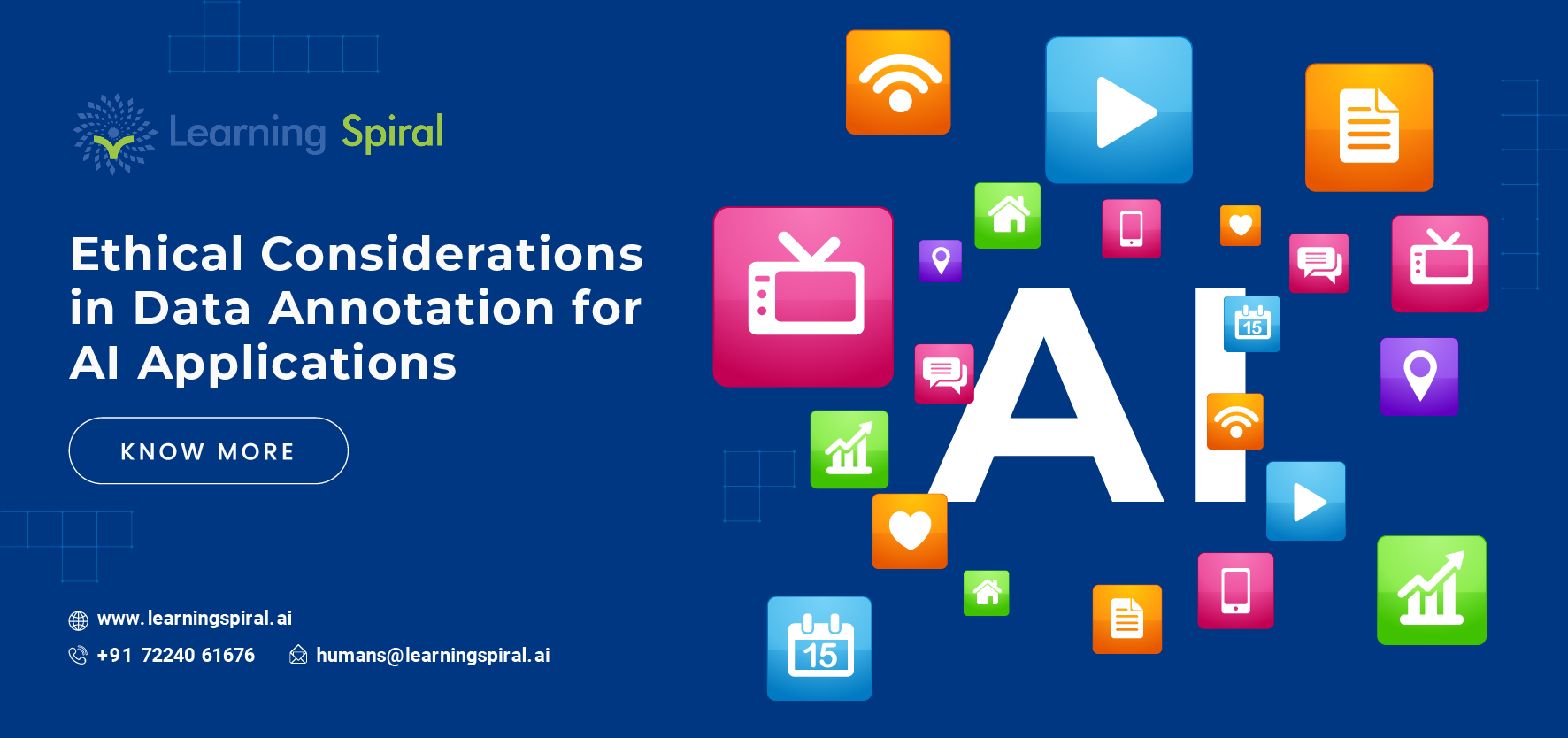
Data annotation is utilized to help machine learning perform various tasks. This technique keeps the AI model updated with the recent changes as well as helps the model identify and handle its task accurately. This is done by labeling data (text, image, audio, and video) with relevant information.
Data annotation services are becoming a huge requirement from various sectors and businesses due to the rapid advancement of the world. It is a crucial step in developing machine learning models, as the quality of the annotated data directly impacts the performance of the trained model.
However, the one issue which complicates the adaptation of data annotation is the ethical concerns. Biases on ethic-related issues often lead to the machine learning model generating problematic results.

It is also important to be aware of the potential for bias in data annotation. This can happen if the annotators are biased or if the data itself is biased. Therefore, the data annotators need to keep certain ethical considerations in mind. Some of those are:
- Privacy: When annotating data, it is important to take steps to protect the privacy of the individuals whose data is being used. This may involve hiding the data source or removing any Personal Identifiable Information (PII).
- Variety in Annotators Beliefs: Annotators performing the task should be chosen who have expertise in different sectors as well as from various communities. This way, a particular bias of a particular community would not be reflected in the machine learning models dataset.
- Transparency and consent: It is important to be transparent about how the data is being collected and used. Additionally, it is important to obtain consent from the individuals whose data is being used.
Here are some specific steps that can be taken to address these ethical concerns:
By following these guidelines, you can help to ensure that your data annotation practices are ethical and responsible.
Here are some additional tips for ethical data annotation:
- Use a data annotation platform that has ethical guidelines: There are a number of data annotation platforms that have ethical guidelines in place. These guidelines can help to ensure that your data annotation practices are ethical and responsible. Learning Spiral Pvt. Ltd. is one such example.
- Train your annotators on ethical data annotation: Train your annotators on ethical data annotation practices. This will help them to identify and avoid potential ethical issues. Creating a checklist of certain words, phrases, or sources with the most possibility of biased data will help weed out the worst of the issues.
- Monitor your data annotation process: Monitor your data annotation process to ensure that your ethical guidelines are being followed.
By following these tips, you can help to ensure that your data annotation is ethical and responsible.

